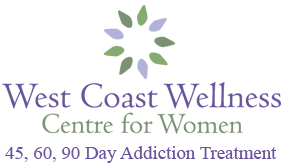Alcohol withdrawal symptoms can be a medical emergency. If several symptoms occur, it is important to get medical assistance as quickly as possible. Alcohol withdrawal can be fatal so the cold turkey approach should be avoided at all costs.
Detox Centres Provide a Faster, Safer, Less Painful Alcohol Withdrawal
Instead of quitting alcohol cold turkey, a detox centre should be used. Not only do detox centres offer a faster withdrawal, but pain can be controlled with safe medications provided by medical staff. Emotional support is also readily available.
The Detoxification Phase – Alcohol Withdrawal Symptoms Intensity and Duration Differ Person to Person
Alcohol addiction and alcohol withdrawal symptoms differ between people for a number of reasons, including drinking patterns. It’s nearly impossible to predict how abruptly stopping drinking will affect someone. Generally speaking, the longer the period of drinking and the heavier the consumption, the more severe the withdrawal symptoms.
What Happens to the Body When Alcohol Consumption is Abruptly Stopped?
Alcohol withdrawal is a result of sudden cessation of consumption. The human body becomes adapted to the regular ingestion of alcohol and attempts to counteract the impact of alcohol. When usage is stopped suddenly, this habituation works against the person by causing a variety of unpleasant and possibly dangerous physical symptoms.
Alcohol Addiction Chronology – Scary Symptoms of Alcohol Withdrawal Including Delirium Tremens
Shortly after cessation, in within as little as 12 hours, several uncomfortable alcohol withdrawal symptoms occur. Often the first is anxiety and possibly a headache. Shaking hands and agitation are also fairly common. Nausea may also occur and may be strong enough to cause vomiting.
Within 24 hours of ceasing to consume alcohol, tremors and disorientation may set in. Seizures are also a possibility, which may indicate serious withdrawal or Delirium Tremens. This is a medical emergency and should be treated as such.
Over the next 24 hour period, insomnia is common. More serious symptoms such as high blood pressure, hallucinations, continuing disorientation, sweating and high fever may also manifest, again indicating DTs.
From Detox to an Alcohol Rehab Program – The Pathway to Recovery and Relapse Prevention for a Sober Life
Detox facilities are also connected to drug and alcohol treatment centres. Once the withdrawal process is complete, transference into a rehab centre is the next step. This will help the alcohol dependent person figure out why they started using and give them the tools they need in order to live a sober life. Aftercare and a relapse prevention program are the next steps. This whole process can be done through our addiction program for women.
We Can Help – Contact Us for More Info About Alcohol Withdrawal Symptoms or Our Addiction Program for Women
If you or someone you know is suffering from alcohol dependency or is exhibiting alcohol withdrawal symptoms, we can help. We are a drug and alcohol treatment centre for women in the Greater Vancouver Area. Our knowledge, experience, care and guidance paves the way for healing and recovery. Help is only a click or call away. Contact us today at 1-800-801-8354.


Leave A Comment
You must be logged in to post a comment.